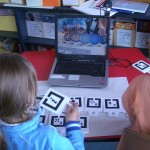 Games are undoubtedly powerful devices for learning new skills and changing our behaviours. Despite this potency, their formal use in the classroom has probably been marginal. A recent study has explored whether games deserve a more prominent place in the classroom.
Games are undoubtedly powerful devices for learning new skills and changing our behaviours. Despite this potency, their formal use in the classroom has probably been marginal. A recent study has explored whether games deserve a more prominent place in the classroom.
The study hopes to provide both a greater sense of context to the topic, but also provide game designers with insights that they can utilize when constructing educational games in future.
“At a time when the interest in the use of games for learning purposes is increasing, and when school districts are adopting games for use in the classroom, we need more insights into how teachers use digital games in the classroom, and how they use them to assess student learning, so we can provide designers with essential input to build the next generation of learning games,” the authors say.
The study was compiled in two core parts. The first consisted of a nationwide survey of school teachers to try and offer a birds eye view of what teachers are currently doing with games in the classroom. Was there any difference, for instance, between games used during the learning process and during the assessment process?
It emerged that over half of all teachers are using games on a regular basis as part of the teaching process. Not surprisingly, the level of comfort felt with the games reflected how regularly they’re used in the classroom.
The use of games appeared highest amongst teachers of younger children, with 79% of grade 3-5 teachers claiming to use them on a weekly basis. The study suggests this is more to do with the availability of suitable games for this audience than any preference amongst teachers.
It also emerged that games were commonly used as part of the assessment process by around a third of teachers. It transpired that those who used games for this purpose tended to assess their pupils more frequently than those who didn’t use games.
The biggest barriers to usage were cited as the cost of games, a lack of time available in the curriculum and a lack of technology in the classroom to support the games.
“The most exciting finding in this study is the relationship between game use and formative assessment practices,” the researchers say. “Formative assessment is thought of as one of the most important classroom practices to support student learning, and our study indicates that teachers who use games for formative assessment conduct assessment more frequently and report fewer barriers.”
I think that games can play a huge role in the classroom for students.